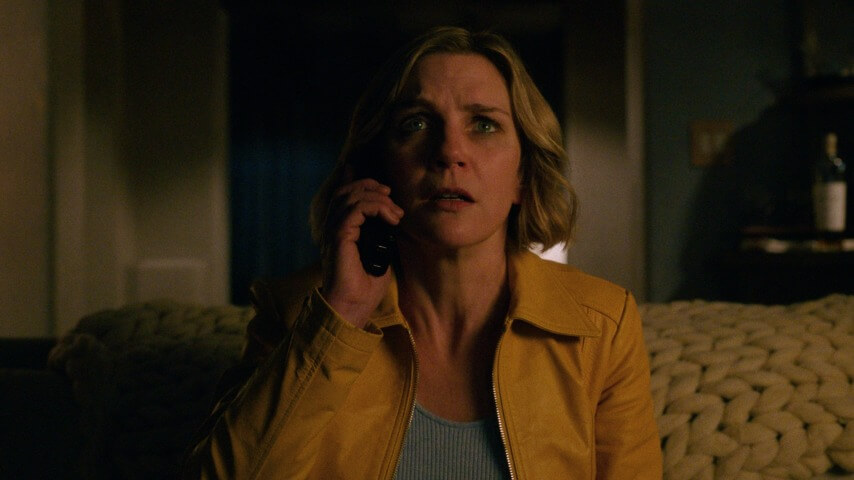Vince Gilligan really doesn't want to help you prepare for Pluribus
"We want people to think they know what's going to happen next—and then, invariably, they're wrong."
Pluribus (Photo: Apple TV+)
No one knows quite what to expect from Apple TV’s Pluribus, and that’s exactly what series creator Vince Gilligan wants. The psychological sci-fi thriller has had some curious marketing, and even the proper trailer raises questions about its plot. Is it about an apocalypse, an alien invasion, or a disease? All we know is that a virus of some sort has made the population supremely happy, with the exception of Carol Sturka (Rhea Seehorn), the only person on Earth burdened with rage, sorrow, and confusion. Gilligan, who reunites with the actor three years after Better Call Saul‘s end, claims he doesn’t want viewers to know much more than that in advance of the premiere on November 7. But the Breaking Bad creator does admit that he’s been thinking about Pluribus for almost a decade now and rewired the project so that Seehorn could star. The A.V. Club spoke to Gilligan about what drew him to this subject matter, sci-fi inspirations, and how audiences should prepare for Pluribus‘ twisted ride.
The A.V. Club: How long has this idea been with you? I ask because almost 20 years ago, you co-created a show called A.M.P.E.D. with Frank Spotnitz about an epidemic affecting the planet. What inspired you to stick with the larger concept, and how did it turn into Pluribus?
Vince Gilligan: Oh, yeah, that show with Frank. You’re the first person to bring it up to me. We had created this pilot called A.M.P.E.D. in 2007, so way before COVID. It was about an epidemic that turned people into various things, so it was not like Pluribus per se. It was more of a cop show, and how a robbery homicide division dealt with it. It was like a Michael Mann show crossed with X-Files. That should’ve been picked up. Anyway, with Pluribus, I was thinking about a character about eight or nine years ago. I was thinking about a guy who, suddenly, the world is very nice to him, and they love him. He hasn’t done anything particularly to deserve it, but they just love this guy. They will do anything for him, anything. I found that very intriguing. I pondered that for weeks and months and then decided, because at the same time I was working with Peter Gould on Better Call Saul, I thought, “Wow, we got so many good actors on this show. But I tell you that Rhea Seehorn, I’d like to work with her again.” I just had the same feeling with her that I did when I worked with Bryan Cranston on his particular episode of X-Files. I had thought to myself that I liked the cut of the guy. Similarly, I thought I could write this show for Rhea. And now I can’t wait for the world to see how wonderful she is in Pluribus. Our whole crew feels that way about her. We got a lot of the same folks who worked on Better Call Saul in Albuquerque, so they’ve known her for 10 years or more now, and they’d crawl across broken glass for her.
AVC: What aspects of sci-fi did you want to bring to life here?
VG: I love science fiction. I just grew up watching and inhaling it as a little kid—well into my teens and adulthood, too. I love all the old tropes. I love the wonderful, classic sci-fi stuff like Invasion Of The Body Snatchers and The Twilight Zone and all their twists. So I wanted to give a tip of the hat to those movies and TV shows, but I also wanted to subvert or turn them. And that’s what we intended to do with Pluribus. We want people to think they know what’s going to happen next—and then, invariably, they’re wrong.
AVC: Carol Sturka is single-handedly trying to fix this global problem. Loneliness is something your other leads, Walter White and Saul Goodman, go through as well. What about this feeling makes for good storytelling?
VG: I relate to people who feel like outsiders. I think we all do. I often say, “Oh, I’m a lone wolf. I get what it’s like to be an outsider.” Hell, everybody does. Everybody feels like that. There might be billionaires out there who feel like underdogs because everybody loves underdogs, everybody loves Rocky Balboa. Human beings like to see themselves like that. Sometimes I walk into a restaurant, and I get this feeling that everybody knows each other, and I’m the only one who’s a stranger. That’s a very human feeling. So I like a hero who is not fully equipped for the task. Carol Sturka wants to save the world, but it doesn’t necessarily need to be done by her. She doesn’t need the credit. She just assumes someone else will take the reins of this thing. She’s not fully equipped to do it. In the show, it’s not at all clear that she will be able to do it. It’s not even necessarily clear that the world needs saving. Those are the kind of stories I like, where the audience can say, “You know, I don’t know if she’s even doing the right thing. I know her heart’s in the right place, but is she even doing the right thing?”
 Keep scrolling for more great stories.
Keep scrolling for more great stories.
